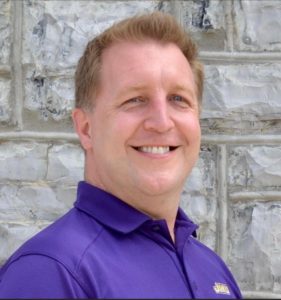 Editor’s note: This article continues a month of focusing on Identity and the stories and histories that we’ve laid claim to that have shaped us. Throughout the month, we invite others to share stories of their own identities. We do so in the hopes of better understanding ours and nurturing greater care and compassion for those who don’t share the same identity. In the end, however, we have our strongest identity in our togetherness—as beloved children of God. Today, Matthew Hunsberger talks about the power of story and the work of Narrative 4.
Editor’s note: This article continues a month of focusing on Identity and the stories and histories that we’ve laid claim to that have shaped us. Throughout the month, we invite others to share stories of their own identities. We do so in the hopes of better understanding ours and nurturing greater care and compassion for those who don’t share the same identity. In the end, however, we have our strongest identity in our togetherness—as beloved children of God. Today, Matthew Hunsberger talks about the power of story and the work of Narrative 4.
I love stories. As followers of Christ, we are a people of story. Our faith is grounded in the stories we read in Scripture, the various other oral and written stories of the generations between Eden and today, the stories of our very lives, and the stories we still have the power to write, whether we share those stories or whether they will exist only in our memories and future dreams.
All of these stories shape our identity and our faith.
Stories can be beautiful, powerful, and dangerous. In her TED talk on “The danger of a single story”, storyteller Chimamanda Ngozi Adichie’s provides examples of ways we project stereotypes through the limited stories that we hear about people or groups. She notes that if we “show a people as one thing—as only one thing—over and over again…that is what they become.” She goes on to say that, “The problem with stereotypes is not that they are untrue, but that they are incomplete.”
Let me share a few truths about the power of story.
First, when we make generalizations using the example of a limited narrative, we dishonor the stories we haven’t heard.
The stories we hear shape both our beliefs and our attitudes towards others. Hearing only certain stories robs us of the opportunity to discover a more complete understanding. Hearing multiple stories can be a wonderful way to honor our neighbors and to celebrate the expansive ways that God’s love is revealed in them.
When I came out as gay in 2010, I refused to be a poster child for any “side.” As a conservative-leaning gay Christian, I noted the potential for people on various sides to point to my story as justification for their own entrenched beliefs. I wanted people to hear the stories of other LGBTQ people that might broaden and deepen their perception. I listened to many of those other stories myself. Those stories and my careful study of Scripture continue to shape my own understanding of my identity as a gay person of faith.
Second, stories can be systematically ignored.
In history, politics, and society, we’ve become really good at this. We’ve chosen to honor the perspectives of white colonizers and ignore those of the Indigenous stewards of the lands. We even read Scripture with a confirmation bias. When we read John’s account of the woman caught in adultery and the mob of murderous men, for instance, we tend to hear only “neither do I condemn you” or “go and sin no more.” Depending on the point that we’re trying to make, we too easily cut out Jesus’ other response entirely. You can see here how even the names we give to stories situate them in a particular perspective!
Third, sometimes we use stories carelessly.
We gossip, take stories out of context, and enhance the parts that elevate an emotional response, while missing opportunities to find golden strands of the fiber of God’s love running through them. Stories are never simply received; instead, they are always interpreted.
Stories and their interpretations have the power to continually reshape our understanding even as our understanding reshapes our stories. Stories can always be retold and understood in multiple ways. That doesn’t make one interpretation correct and the others invalid.
I have participated in CSA’s Oriented to Love dialogue experience, and I have facilitated story exchanges using the Narrative 4 model. Both programs underscore that honoring each other’s stories doesn’t mean that we will necessarily agree. Instead, we understand that every story matters and that every story we hear is an opportunity for us to build understanding and increase empathy.
Fourth, stories need to be told and shared.
Narrative 4 co-founder Colum McCann says that, “The one true democracy that we have is storytelling. It goes across borders, boundaries, genders, wealth, race—everyone has a story to tell.” Narrative 4’s story exchanges focus on the broad themes of faith, identity, immigration, violence, and the environment. Some of the most meaningful examples I’ve seen of story sharing have been in these settings.
People have learned to know colleagues better as they shared vulnerably and powerfully from their lives. Students on different continents have seen glimpses into each other’s experiences and learned from one another. “How impressionable and vulnerable we are in the face of a story,” remarked Adichie in her TED talk. Hearing stories from people who represent aspects of our own story is a reminder that we are deeply connected.
While the single story robs people of dignity, a multiplicity of stories can emphasize ways in which we are similar rather than different.
Fifth, not all stories should be accepted as true.
We readily accept that novels, fairy tales, movies, and TV shows are based in fiction. Unfortunately, the lines between truth and fiction have become more blurry. No matter our political persuasion, “fake news” and “alternative facts” have become so common that many people have used stories as facts and persuaded themselves and others to believe untruths—sometimes with catastrophic consequences.
Our own experiences and the stories we tell ourselves can be equally powerful persuaders. “I’m not good enough,” “It’s probably my fault,” “I’m not worthy,” and “I’m unlovable” are common lies that can result from the stories of our lives. Stressing the importance of including negative stories without giving them undue power, Adichie says that, “all of these stories make me who I am, but to insist on only these negative stories is to flatten my experience and to overlook the many other stories that formed me.”
Adichie closes her talk with the words, “Stories matter. Many stories matter. Stories have been used to dispossess and malign—but stories can also be used to empower and to humanize.”
As faithful people interacting with stories every day in multiple dimensions, we have choices. We can choose to use stories to divide, disempower, and entrench, or we can use them to exercise vulnerability and humility and to expand our understanding of God’s love.
 Matthew Hunsberger is a Building Coordinator and graduate student at James Madison University, where he has facilitated a number of Narrative 4 story exchanges. He is also an alum of CSA’s Oriented to Love dialogue experience. He is a member of Community Mennonite Church in Harrisonburg, VA, and attends services virtually at Stahl Mennonite Church near Johnstown, PA.
Matthew Hunsberger is a Building Coordinator and graduate student at James Madison University, where he has facilitated a number of Narrative 4 story exchanges. He is also an alum of CSA’s Oriented to Love dialogue experience. He is a member of Community Mennonite Church in Harrisonburg, VA, and attends services virtually at Stahl Mennonite Church near Johnstown, PA.


